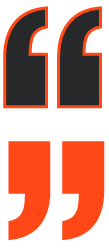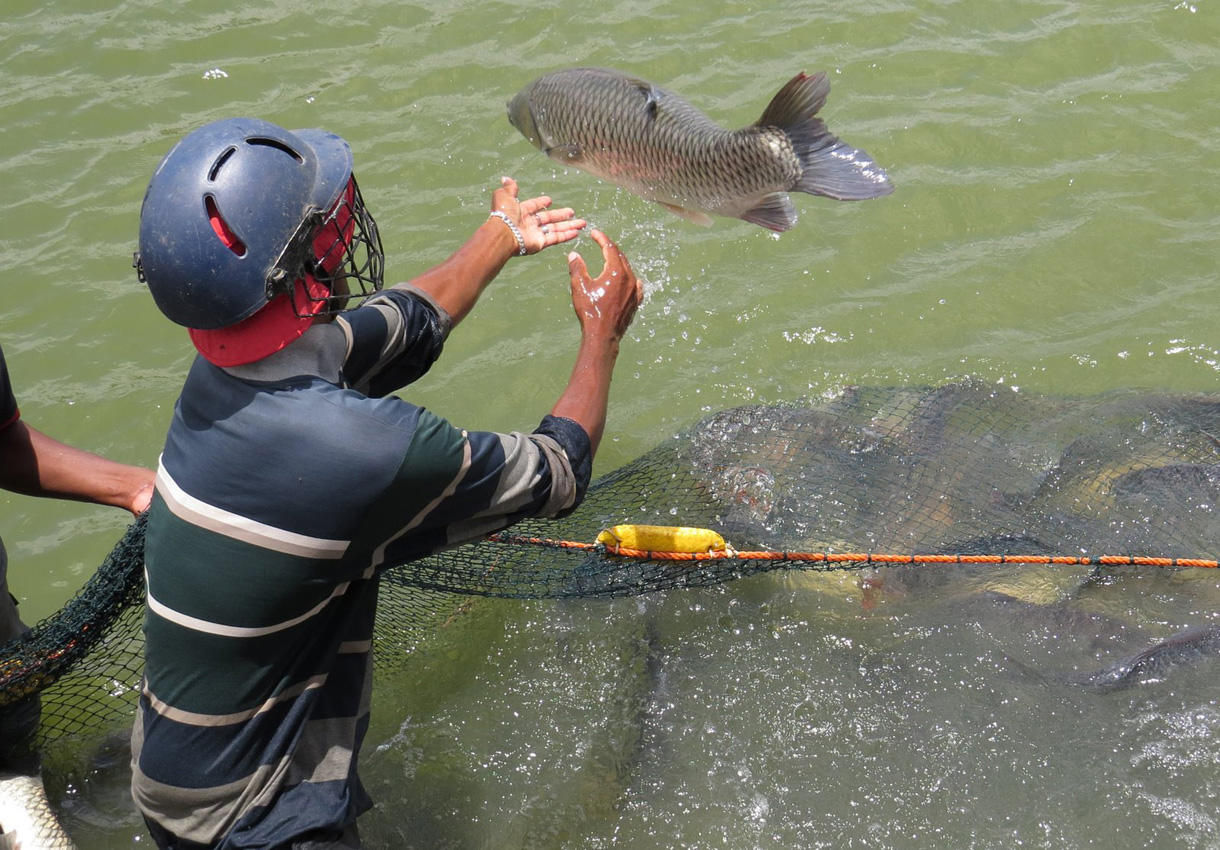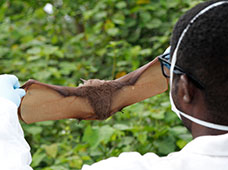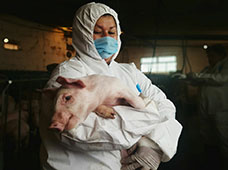ARTICLE
Leveraging technology
to support Veterinary Services
In 2021, the World Organisation for Animal Health (WOAH, founded as OIE) stepped up its digital transformation while maintaining a focus on its Members’ needs. The goal: tapping into new technologies to strengthen Veterinary Services worldwide.
Boosting digital support to Veterinary Services
More digital, more responsive, and more efficient. The support provided to Veterinary Services worldwide by the World Organisation for Animal Health entered a new transformative phase in 2021. Guided by our Seventh Strategic Plan (2021-2025), we have built on our existing digital framework while maintaining a focus on our Members’ needs through three main initiatives:
- The development of the Observatory to monitor the implementation of International Standards.
- The evolution of the Performance of Veterinary Services (PVS) Pathway.
- The implementation of our data governance framework.
Through digitalisation, the Organisation strives to streamline the dissemination, and analysis of animal health data for all stakeholders. Enhanced digital capacities will also support our Members’ engagement and compliance with our International Standards. Such measures increase transparency, adaptability, preparedness, and resilience to better overcome challenges at a community, national, regional, and international level.

Harnessing digital technologies for the benefit of all countries, while ensuring their responsible use and accessibility, will be key to the effectiveness of animal health systems.
Observatory: beyond its pilot phase
The Observatory is a strategic and long-term undertaking. It provides a data-driven mechanism for monitoring and evaluating compliance with our International Standards. When fully operational, it will support and engage our Members as they implement our International Standards for veterinary public health, animal health, and welfare.
Launched in 2020, the pilot phase of the Observatory was completed in 2021. Five prototypes were carried out to gather data and establish indicators describing the implementation of our International Standards by Members.
For instance, a prototype has been developed on African swine fever (ASF), a pig disease that has spread relentlessly in recent years, becoming an animal health priority for most of the affected countries. The objective was to identify indicators associated with standards for disease prevention and control, which could ultimately help assess the overall capacity of Veterinary Services to respond to an emergency. Based on the analysis and the information reported by countries, 40 out of our 182 Members had an ASF emergency plan in place in 2018, while 20 had conducted a simulation exercise for this disease between 2006 and 2021. Both actions are crucial components of emergency preparedness.
Having identified indicators to be monitored annually, the Observatory is thus equipped for its first annual implementation review, due to be published at the end of 2022.
Following WOAH’s International Standards improves the health of animals and our future. Because animal health impacts everyone’s health.
New ways forward for our PVS Pathway
As one of the our flagship capacity-building programmes, the PVS Pathway continues to provide independent expertise through country-centric strategies for improving national Veterinary Services and strengthening their role in One Health systems. More than 140 countries have already benefited from this initiative. The PVS Pathway also plays a crucial role to support Members in understanding and implementing our International Standards. The programme is currently evolving with new methodologies to better meet Members’ needs, using hybrid options combining virtual activities with field interventions.
In the wake of the COVID-19 pandemic, the Organisation showed its readiness to further the PVS Pathway’s digitalisation. In early 2021, it carried out its first-ever virtual mission to Liberia, as part of its PVS Sustainable Laboratories mission. Entirely remote, the initiative revealed how new digital tools can help veterinary laboratories cope with logistical challenges imposed by cross-border movement restrictions. These new digital tools and collaborations can provide opportunities and more flexibility to support Members moving forward. The experience with Liberia is certainly one to remember as a new milestone in the history of the Organisation: by informing the development of all PVS Pathway missions, it will fuel wins for the future and inspire hybrid ways for the Organisation to respond to rising challenges and see its activities thrive in a growingly interconnected world.

Our database of antimicrobial use (AMU) in terrestrial and aquatic animals will be interactive and automated, enabling Veterinary Services to easily report AMU and access the knowledge needed to make better evidence-based decisions.
Digital transformation and responsible management of data
As we increasingly rely on data to guide our activities, we must ensure their accessibility for everyone. In 2021, a special focus has been put on our data governance framework, in line with the objectives of our Seventh Strategic Plan. This data governance framework covers projects such as the monitoring of antimicrobial use in animals (AMU), the Observatory, and the Global Burden of Animal Diseases (GBADs) programme, among others.
Our framework will provide a means of ensuring that any data system employed by the World Organisation for Animal Health is secure and efficient. This also allows for better transparency and accessibility by all Members and stakeholders.
Among our data-driven tools to support countries, we are building a new customised interactive online system for collecting, analysing and reporting data on the use of antimicrobials in animals. As a key component of our strategy to limit the emergence of antimicrobial resistance (AMR), we have been collecting data on antimicrobials intended for use in animals since 2015. The upgraded database will enable faster analysis and reporting, while providing more autonomy to our Members who will benefit from valuable insights and information. In 2022, several webinars will be organised to raise awareness on AMU data collection among stakeholders and accompany their transition to the new digital tool.
In 2021, the Organisation also launched the new version of WAHIS, its global database on the animal health situation worldwide. WAHIS data showcases the information on animal diseases reported by countries. The new public interface offers interactive mapping and dashboards to help with data consultation, visualisation, and extraction, supporting both national decision-makers and the international community in making evidence-based decisions. Better access to data will lead to better animal health and well-being.
ALSO READ

Innovating for wildlife health
Discover

Giving animal health a voice
Discover

Animal health is everyone’s health
Discover
